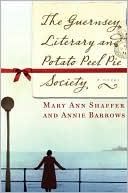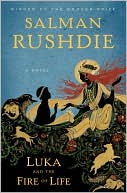Fear of Flying
The 30th Anniversary special!\ Originally published in 1973, the ground-breaking, uninhibited story of Isadora Wing and her desire to fly free caused a national sensation—and sold more than twelve million copies. Now, after thirty years, the iconic novel still stands as a timeless tale of self-discovery, liberation, and womanhood.\ \ \ \ Now with a new introduction by the author, one of the most influential books ever on women's sexuality is ready to expose a new...
Search in google:
Originally published in 1973, this uninhibited story of Isadora Wing was a national sensation: fueling fantasies, igniting debates, and even introducing a notorious new phrase to the English language. In The New York Times, Henry Miller compared it to his own classic Tropic of Cancer, predicting, "This book will make literary history, that because of it women are going to find their own voice and give us great sagas of sex, life, joy, and adventure." It went on to sell more than twelve million copies. Today, Fear of Flying is a classic—a timeless tale of self-discovery, liberation, and womanhood.Gale ResearchIn a New York Times appraisal, novelist Henry Miller compares Fear of Flying to his own Tropic of Cancer--only "not as bitter and much funnier"--and predicts that "this book will make literary history, that because of it women are going to find their own voice and give us great sagas of sex, life, joy, and adventure."
\ Gale ResearchIn a New York Times appraisal, novelist Henry Miller compares Fear of Flying to his own Tropic of Cancer--only "not as bitter and much funnier"--and predicts that "this book will make literary history, that because of it women are going to find their own voice and give us great sagas of sex, life, joy, and adventure."\ \ \ \ \ Terry StokesAlthough there is a lot of conjecture about mutability in the novel, nothing changes. Isadora (the narrator of Erica Jong's first novel) is as passive in the end as she was in the beginning. Oddly, the narrator denigrates all women by casting them in her mold; people who don't know what they want...there is some great humor in the book, but often Isadora's condescension and self-consciousness reduce the experience for the reader. Books of the Century, The New York Times, November, 1973\ \








